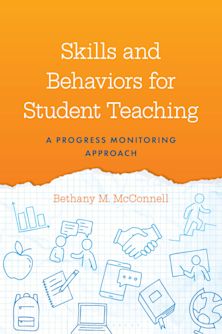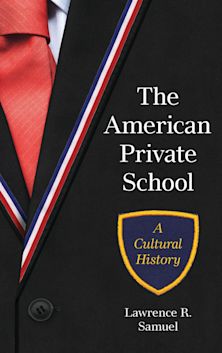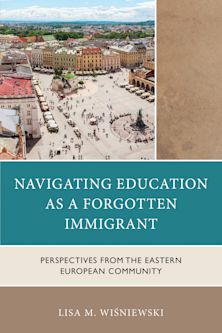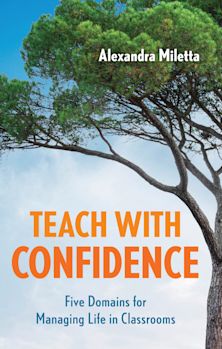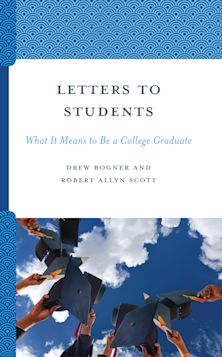- Home
- ACADEMIC
- Education
- Education - Other
- Latinos Unidos
Latinos Unidos
From Cultural Diversity to the Politics of Solidarity
- Textbook
Latinos Unidos
From Cultural Diversity to the Politics of Solidarity
- Textbook
Buy from Bloomsbury eTextBooks
You are now leaving the Bloomsbury Publishing website. Your eBook purchase will be with our partner https://www.vitalsource.com.
Your credit card statement will show this purchase originating from VitalSource Technologies. They will also provide any technical assistance you might require.
You must sign in to add this item to your wishlist. Please sign in or create an account
Description
Latinos Unidos presents an unexpected perspective on Latinos_not only as a highly diverse and rapidly growing population in the United States with distinct social, cultural, and economic features_but as a new political force with a cohesive collective ethnic identity. Indeed, Latinos in this country constitute a new political power coming to grips with their global significance. Within two decades, Latino children will constitute a majority in urban public schools around the country. By the mid-21st century, Latinos (along with African-Americans) will represent half the U.S. population. While much of the literature in the social sciences continues to stereotype Latinos as marginalized, poor, and low-achievers, unable to 'assimilate' and function in mainstream society, Latinos are quietly taking important positions in academic, government, professional organizations, and the international world of economics. Their rapid flow into the U.S. has, to an extent, camouflaged this upward social, educational, and class mobility. Trueba, using his unique vantage point as a Latino immigrant and scholar, explores the vital issues of personal identity and resiliency, adaptive strategies, and successes of Latinos in North America in this pathbreaking book. Among the most fascinating and least known subjects he discusses are binational networks, which describe the bilingual and bicultural capabilities of a new generation of Latinos who can function on both sides of the border with Mexico. Most of all, readers will come away from Latinos Unidos with the growing significance of Latinos in the U.S. and their vital role in shaping the future.
Table of Contents
Chapter 2 Foreword
Part 3 Introduction: The Genesis of This Volume and Its Author
Chapter 4 Personal Resilence and Self-Identities
Part 5 The Politics of Latino Self-Identity
Chapter 6 A Brief Historical Perspective: From a Colonized Mentality to Liberation
Chapter 7 The North American People's View of Immigrants
Chapter 8 Fear in an Older and Impoverished America
Chapter 9 A New Collective Latino Identity: Unexpected High Political Profile
Chapter 10 Cultural Roots of Resilency
Chapter 11 Religious Foundations of Resilency and Solidarity
Chapter 12 Redefinition of the Self and New Leadership
Chapter 13 Conclusing Reflections
Part 14 Latino Diversity: Demographic, Socioeconomic, Occupational, and Educational Characteristics
Chapter 15 Socioeconomic and Demographic Characteristics
Chapter 16 Migration and Economic Crises
Chapter 17 The Rural-Urban Continuum
Chapter 18 The Struggle of Latino Children in Schools
Chapter 19 Preparing Teachers for Latino Students
Chapter 20 A Deficit View of Latino Students
Chapter 21 The Isolation of Latino Students
Chapter 22 Student's Cultural and Cognitive Capital
Part 23 Race and Ethnicity in Academia: Latinos in High Education
Chapter 24 Race, Ethnicity, and Xenophobia
Chapter 25 Debate on Affirmative Action
Chapter 26 My Personal Experience
Chapter 27 Specific Cases of Exclusion
Chapter 28 Conflict Resolution
Chapter 29 Concluding Thoughts
Part 30 Mexican Immigrant Families in California
Chapter 31 Soiciopolitical Context of Mexican Farm Labor
Chapter 32 Mexican Immigrants in Migrant Town
Chapter 33 The Role of Women in the Family
Chapter 34 The Case of Consuelo
Chapter 35 The Personal and Family Contextual Features of Resilency
Chapter 36 Binational Lives
Part 37 Critical Ethnography and a Vygotskian Pedagogy of Hope: The Case of Mexican Immigrant Children
Chapter 38 What is Critical Ethnography?
Chapter 39 Adaptive Responses of Mexican Immigrants
Chapter 40 Education and Empowerment of Mexican Immigrants
Chapter 41 Mr. Villegas, the Fourth Grade Teacher
Chapter 42 From Critical Ethnography to a Vygotskian Pedagogy of Hope
Chapter 43 Concluding Thoughts
Chapter 44 Ethnic Identity
Part 45 Latinos in the Twenty-First Century: The Components of Praxis for a Pedagogy of Hope
Chapter 46 Resilency and Latino Identities: A Theoretical Reflection
Chapter 47 Praxis for a Pedagogy of Hope
Chapter 48 New Educational Leadership
Chapter 49 Dreams, Worries, and Borders
Chapter 50 Index
Product details
| Published | 01 Jan 2000 |
|---|---|
| Format | Ebook (Epub & Mobi) |
| Edition | 1st |
| Extent | 216 |
| ISBN | 9780585080574 |
| Imprint | Rowman & Littlefield Publishers |
| Series | Critical Perspectives Series: A Book Series Dedicated to Paulo Freire |
| Publisher | Bloomsbury Publishing |
About the contributors
Reviews
-
Anyone grappling with the complexities of Latino ethnic identity will find Latinos Unidos compelling. This moving work offers a variety of explanations for the cultural cohesiveness of the broad spectrum of Latino realities. It examines the cultural roots of Latino resilience and offers a roadmap for a 'pedagogy of hope.' Trueba argues convincingly that investing in all levels of education is both morally correct and economically imperative in preparing for the realities of today's (and tomorrow's) multicultural America.
Carolo and Marcelo Suarez-Orozco, Harvard University
-
Trueba is a master storyteller. . . . This is a wonderfully exciting piece of work.
Walter G. Secada, University of Wisconsin, Madison
-
Trueba has written a very intersting book about the importance of education not only for Latinos, but also for the future of the U.S. The complexity and the clarity of argument, the detailed research, and the passionate narrative make this book highly recommended for all levels.
P. Vila, University of Texas at San Antonio, Choice Reviews
-
Latinos Unidos is a landmark essay in the continual struggle to understand the growing Latina/o community at the dawn of the 21st century. Tueba's insight into contemporary political problems and his true passion for education, in its broadest sense, are truly an inspiration to young scholars and teachers. Trueba argues for culturally sensitive and politically sensible education in ways that are both intellectually stimulating and emotionally moving. Latinos Unidos is a must read for anyone interested in education, at any level, in the United States.
Rocky Mountain Review
-
Trueba?s contribution to the ongoing discussion on Latino identity in the United States attempts to remedy this by offering readers a deeply-researched yet intimate portrait of the 'intriguing and unpredictable' contemporary history of Latinos in the United States. Latinos Unidos offers a passionate narrative, refreshing analysis, and a strong set of arguments underscoring the importance of education for the Latino population and for the future of the United States. I enthusiastically recommend this book to my colleagues in education, anthropology, sociology, and ethnic studies, as well as to university-level instructors of courses in cultural studies, teacher education, cultural diversity, counseling education, and educational administration. This is definitely a must read for anyone interested in education in the United States..
Anthropology & Education Quarterly
-
Trueba's contribution to the ongoing discussion on Latino identity in the United States attempts to remedy this by offering readers a deeply-researched yet intimate portrait of the 'intriguing and unpredictable' contemporary history of Latinos in the United States. Latinos Unidos offers a passionate narrative, refreshing analysis, and a strong set of arguments underscoring the importance of education for the Latino population and for the future of the United States. I enthusiastically recommend this book to my colleagues in education, anthropology, sociology, and ethnic studies, as well as to university-level instructors of courses in cultural studies, teacher education, cultural diversity, counseling education, and educational administration. This is definitely a must read for anyone interested in education in the United States.
Anthropology & Education Quarterly












